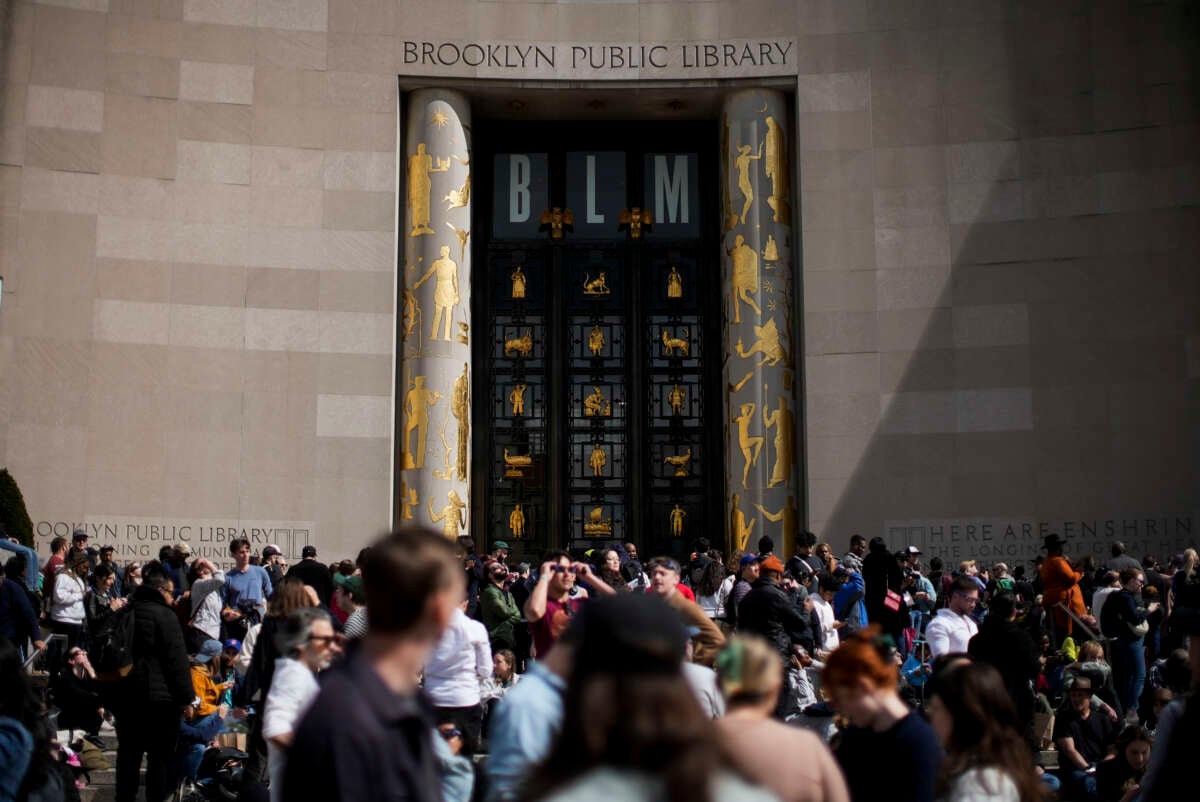If you’ve been anywhere near New York City these past couple weeks, you know it’s been miserable outside, with temperatures in the nineties and a heat advisory warning residents to stay inside. But that’s not always an option, particularly for unhoused or low-income individuals who don’t have access to reliably air-conditioned spaces.
These individuals are often forced to bear the consequences of extreme weather, facing dehydration, heat stroke, and more. For these people, access to cooling centers can be a matter of life and death.
As the latest heatwave drags on across the eastern U.S. and prepares to hit the South next, one of America’s oldest and most beloved social institutions has extended an open invitation to cool off. Amongst their other duties, local public libraries serve as refuges during heatwaves, partnering with local governments and health departments to welcome those who need a reprieve from the scorching temperatures.
But if you turned to your local New York Public Library this past Sunday, one of this summer’s hottest days yet, you were out of luck. Last year, the New York Public Library received a $23.6 million cut in funding, which resulted in its decision to close on Sundays. Recently, Mayor Adams proposed an even bigger cut of $58.3 million for the 2025 fiscal year, citing the “need” to move more funds toward the police, who received $5.8 billion in 2024. After months of protest, a compromise was found.
Unfortunately, this attack on public libraries is not contained to New York. Thanks to the efforts of some lawmakers, libraries all over the U.S. are having an increasingly difficult time serving their communities.
In the ongoing culture war, conservative politicians have been taking drastic measures to stop the distribution of “age-inappropriate books,” which primarily target children’s books by and about LGBTQ+ individuals and people of color. Last year in Missouri, the Secretary of State enacted an administrative rule defunding libraries that carry such content.
But these measures ignore the crucial role that libraries serve in their communities in combating the effects of economic inequality by providing essential resources to those in need.
From attending summer science demonstrations as a kid to volunteering as a high school student, the library has always been an important presence in my own life.
When I was seven and my dad lost his job — and with it my family’s only source of income outside of my mother’s disability benefits — my parents leaned on our community to help raise my sister and I. That meant receiving hand-me-downs from friends and food vouchers from our church, but it also meant that the library became an even more central part of my life. At least once a week, my dad would take my sister and I to the local library, where my sister could get help on her homework, I could explore the children’s books section, and my dad could look for jobs while trusting that we would be well looked after. As they do for so many others, our local library stepped up to take care of us.
Public libraries promote equality by championing free and open access to information. Libraries not only allow individuals to access books but also movies, music, and the internet. A 2019 Gallup poll found that adults in low-income households visit their local libraries more than any other income group.
This is especially important when considering the reading achievement gap. By age 17, low-income students tend to lag behind their peers by as much as four years, a disparity that is fueled by differential access to reading material. This is exacerbated during summer vacation, when school libraries close. To help address this issue and boost literacy rates, 99 percent of public libraries offer summer reading programs for students.
Moreover, as social institutions that are embedded in their communities, libraries are able to recognize and meet the needs of their patrons. In San Francisco, where homelessness is an ongoing crisis, the local library became one of the first to hire an in-house social worker to provide expert help for its unhoused library users.
While legislation and programs aimed at fighting poverty remain caught in legislative quagmires, libraries across the country already offer a variety of services to help society’s most vulnerable.
A study from 2019 found that 75 percent of public libraries offered career services ranging from assistance with writing resumes and cover letters to technology training. Many also offer English as a Second Language (ESL) and General Education Development (GED) courses, as well as citizenship classes. And hundreds of libraries partner with the USDA every summer to serve free meals to kids in low-income communities who would receive free or reduced-price breakfast and lunch at their schools.
Libraries do invaluable work at the local level to ensure that both children and adults get the help they need to succeed in life, but to keep doing so, they need our help. We need to support our local libraries by donating or volunteering where we can.
We can also pressure our lawmakers not to cut funding. Congress is currently working on the budget for the federal budget for 2025. The American Library Association has an advocacy email list that makes it easy to let your members of Congress know that funding libraries should be a national priority, but you can do the same thing at the state and local levels to help protect funding there as well. Public libraries make up a foundational part of our communities, and it’s up to us to help them continue to do so.
Media that fights fascism
Truthout is funded almost entirely by readers — that’s why we can speak truth to power and cut against the mainstream narrative. But independent journalists at Truthout face mounting political repression under Trump.
We rely on your support to survive McCarthyist censorship. Please make a tax-deductible one-time or monthly donation.
